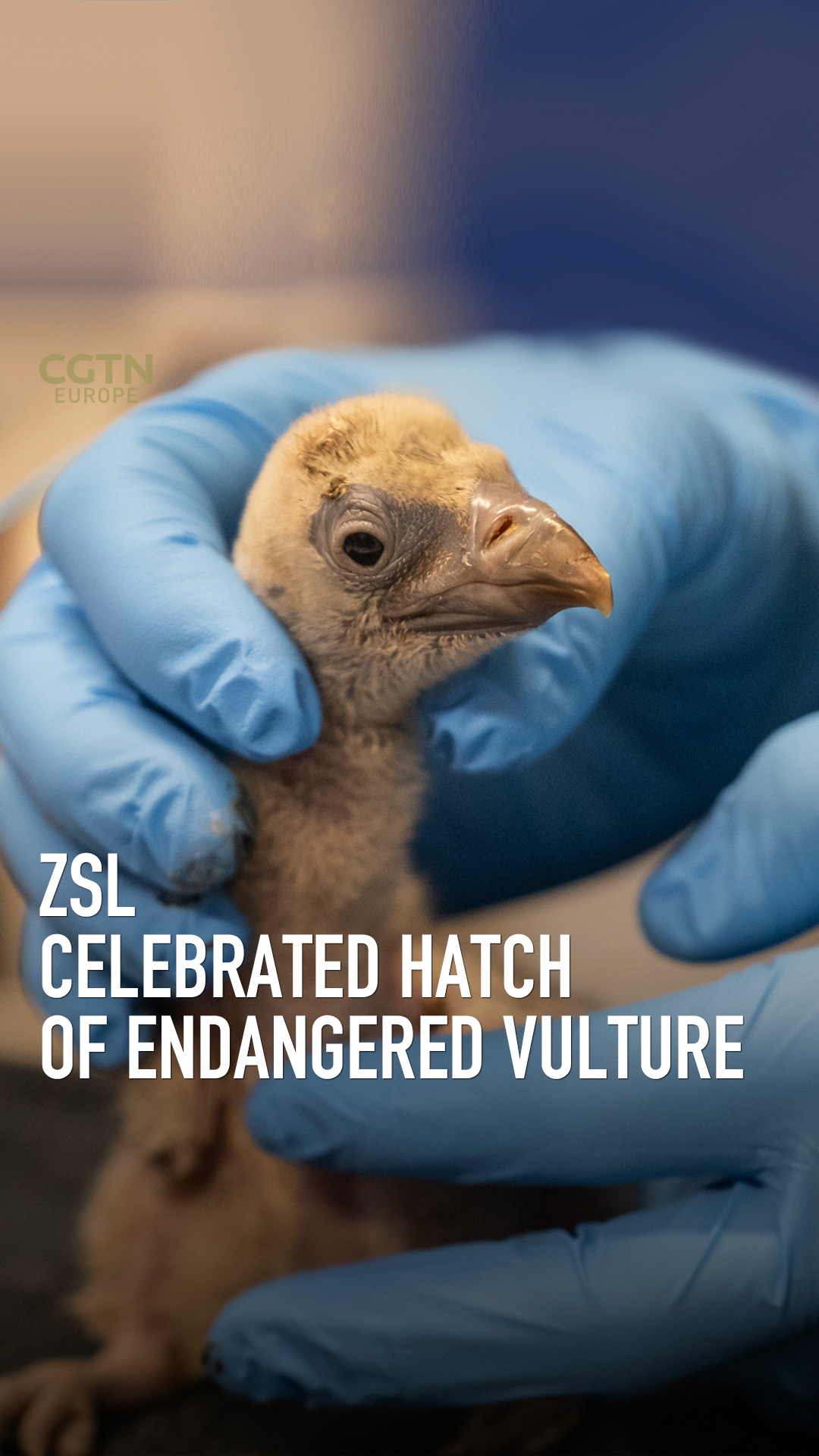00:57

A critically endangered Ruppell's griffon vulture has hatched at London Zoo, the first to be born there for more than 40 years.
Egbert weighed just 115 grams at hatch, around the same as a bar of soap, when it emerged on March 8. Requiring delicate handling in its first days, staff have yet to verify the creature's sex.
Mother Philomena laid her egg in mid-January and zookeepers were concerned for her offspring's survival, particularly because her inexperience as a first-time mum had led her to leave her previous egg for long periods of time, causing it to remain unhatched.
This time round, the egg was removed from Philomena and father Cuthbert to a special vulture incubator, where it was kept at 36.8 degrees Celsius and monitored closely. A wooden dummy egg was placed onto the nest by keepers for Philomena to sit on patiently.

Egbert is faring well at London Zoo. /ZSL
Egbert is faring well at London Zoo. /ZSL
READ MORE:
Moon water discovered on Chinese mission
Why has antimatter disappeared?
UK court rules Rwanda plan is lawful
According to vulture keeper Robert Harland: "The hatching process can actually take a few days in total. As soon as the first break in the shell is made, the egg's membrane starts to dry out, which can restrict its movement and prevent it from surviving the hatch – we saw this happening and knew we had to step in to help."
Vulture specialists from The Horstman Trust offered support and guidance over video call, enabling a Zoological Society of London (ZSL) team to help the safe hatching over 40 minutes.
Zookeepers are hand-feeding the youngster four times daily and Egbert will stay in their expert care until around three months of age. "Since hatch, Egbert has gone from strength to strength and is now weighing a healthy 265g," said Harland. "We've been feeding the little one a meaty protein shake of raw quail, mouse and rat meat which will help the chick put a hefty 7kg over its first three months."
Ruppell's griffon vultures are the world's highest-flying birds, documented to have reached soaring heights of 10,973 meters above sea level – the same height as most aeroplanes. The birds play a crucial role in protecting ecosystems by feeding on abandoned animal carcasses. This helps keep their native African countryside free of harmful diseases.
Once the chick has fledged, the zoo's veterinary team will send a feather off for DNA testing to determine the bird's sex. Egbert is part of the European breeding program for the critically endangered species.
Harland said: "Egbert's arrival is a brilliant conservation success, and shows the power of conservation zoos to restore and protect threatened species across the world."
Subscribe to Storyboard: A weekly newsletter bringing you the best of CGTN every Friday